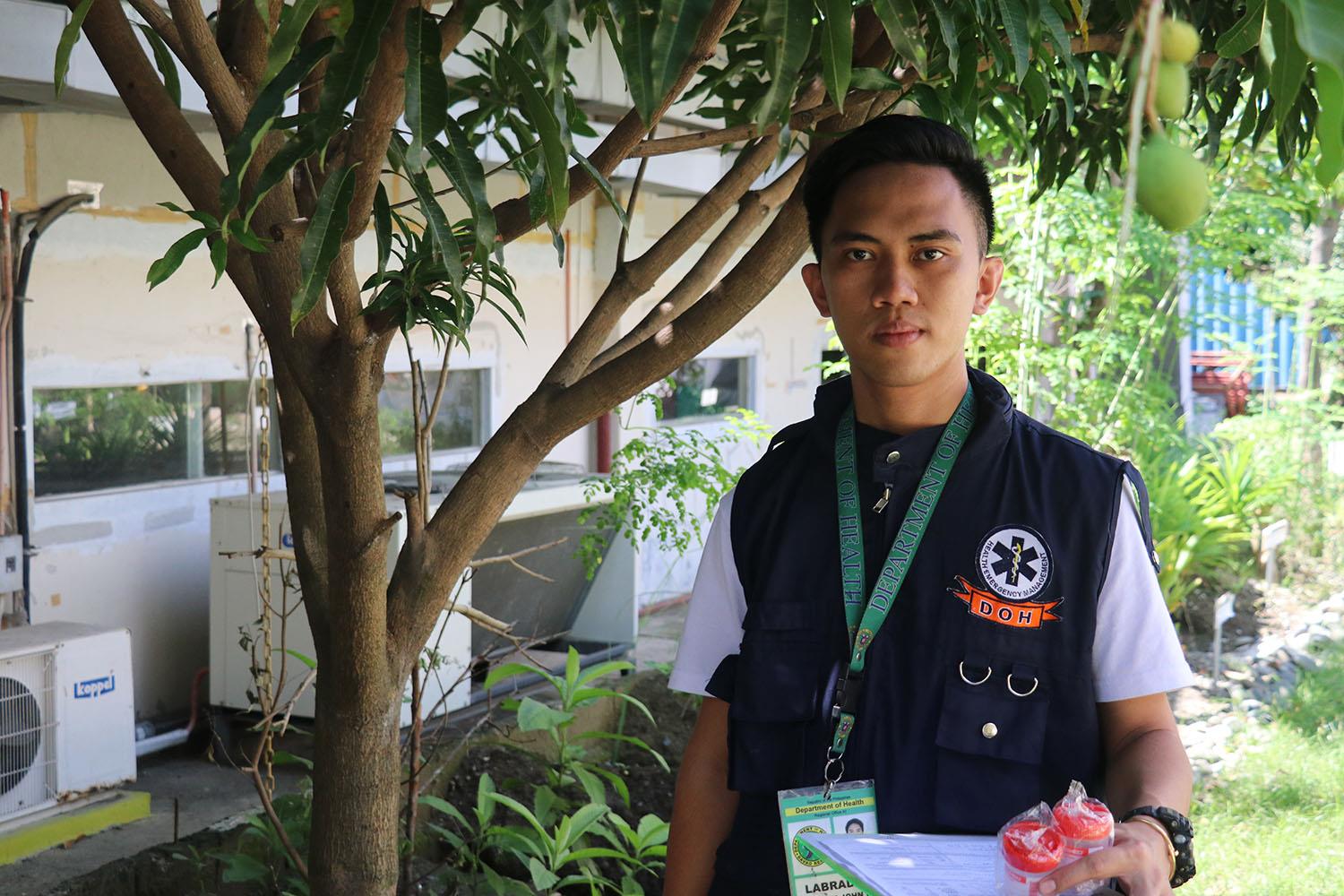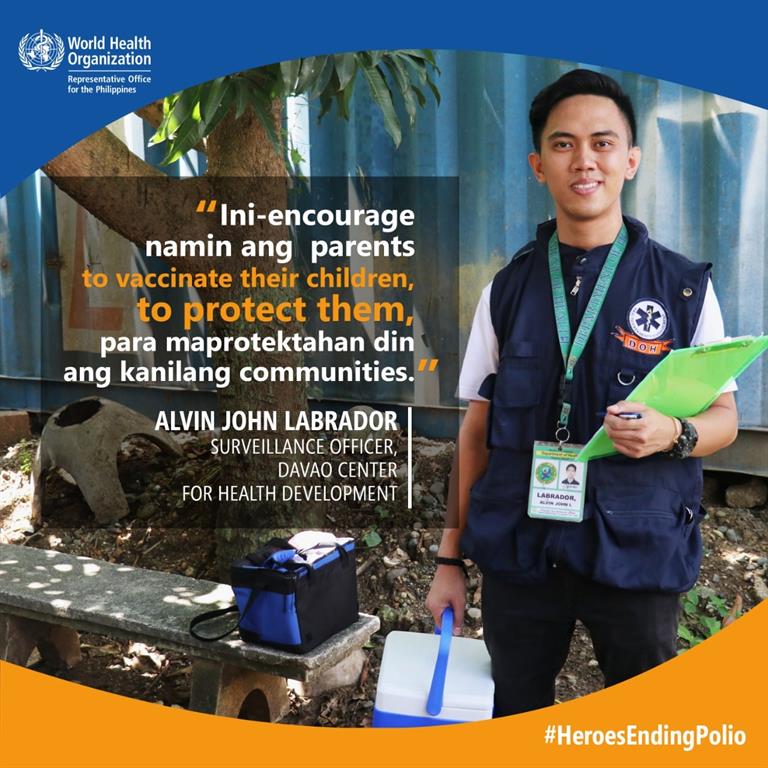Surveillance officers are a vital part of the polio outbreak response team. They are “disease detectives” that continuously and systematically collect, analyse and interpret data for a better polio outbreak response.
Alvin, a surveillance officer from Davao region, shares how they have been intensifying the lookout for possible polio cases after an environmental sample from Davao River tested positive for the poliovirus last September 2019. Here’s his story:
“It was quite alarming and history-making for us as surveillance officers in our region when the environmental sample tested positive. We had so many efforts to prevent polio and to sustain the polio-free status of the Philippines. [Having a positive sample] was concerning.
In surveillance, we look for the case who still might be spreading the virus. This September onwards, we focused on acute flaccid paralysis (AFP)* community case finding. We also continued with records review in hospitals and clinics.
Our work is challenging because we do not know who or where the case is. We also ask the help of parents that if they observe any AFP case, they need report this immediately to surveillance officers or any health authority. We abide by this quote in surveillance: “Early capture of cases for a faster response.”
There were many challenges, especially with the natural disasters in Mindanao. We needed to strategize, to schedule our work well, because some of us had to go on-duty in areas affected by the earthquake. We continued to search not only for AFP cases but also for other vaccine-preventable diseases.
I hope that for this generation, we will not have further polio cases. I hope there will be no one with crutches or enlisted as PWD [persons with disability] because of polio. That’s why we encourage parents to vaccinate their children, protect them, so that communities will also be protected. We can do this. We can make the Philippines polio-free again.”


